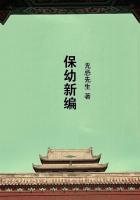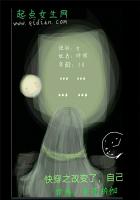We think the question is not whether the theory of the cosmos affects matters, but whether in the long run, anything else affects them.
In the fifteenth century men cross-examined and tormented a man because he preached some immoral attitude; in the nineteenth century we feted and flattered Oscar Wilde because he preached such an attitude, and then broke his heart in penal servitude because he carried it out.
It may be a question which of the two methods was the more cruel;there can be no kind of question which was the more ludicrous.
The age of the Inquisition has not at least the disgrace of having produced a society which made an idol of the very same man for preaching the very same things which it made him a convict for practising.
Now, in our time, philosophy or religion, our theory, that is, about ultimate things, has been driven out, more or less simultaneously, from two fields which it used to occupy. General ideals used to dominate literature. They have been driven out by the cry of "art for art's sake." General ideals used to dominate politics.
They have been driven out by the cry of "efficiency," which may roughly be translated as "politics for politics' sake."Persistently for the last twenty years the ideals of order or liberty have dwindled in our books; the ambitions of wit and eloquence have dwindled in our parliaments. Literature has purposely become less political; politics have purposely become less literary.
General theories of the relation of things have thus been extruded from both; and we are in a position to ask, "What have we gained or lost by this extrusion? Is literature better, is politics better, for having discarded the moralist and the philosopher?"When everything about a people is for the time growing weak and ineffective, it begins to talk about efficiency. So it is that when a man's body is a wreck he begins, for the first time, to talk about health.
Vigorous organisms talk not about their processes, but about their aims.
There cannot be any better proof of the physical efficiency of a man than that he talks cheerfully of a journey to the end of the world.
And there cannot be any better proof of the practical efficiency of a nation than that it talks constantly of a journey to the end of the world, a journey to the Judgment Day and the New Jerusalem.
There can be no stronger sign of a coarse material health than the tendency to run after high and wild ideals; it is in the first exuberance of infancy that we cry for the moon.
None of the strong men in the strong ages would have understood what you meant by working for efficiency. Hildebrand would have said that he was working not for efficiency, but for the Catholic Church.
Danton would have said that he was working not for efficiency, but for liberty, equality, and fraternity. Even if the ideal of such men were simply the ideal of kicking a man downstairs, they thought of the end like men, not of the process like paralytics.
They did not say, "Efficiently elevating my right leg, using, you will notice, the muscles of the thigh and calf, which are in excellent order, I--" Their feeling was quite different.
They were so filled with the beautiful vision of the man lying flat at the foot of the staircase that in that ecstasy the rest followed in a flash. In practice, the habit of generalizing and idealizing did not by any means mean worldly weakness.
The time of big theories was the time of big results. In the era of sentiment and fine words, at the end of the eighteenth century, men were really robust and effective. The sentimentalists conquered Napoleon.
The cynics could not catch De Wet. A hundred years ago our affairs for good or evil were wielded triumphantly by rhetoricians.
Now our affairs are hopelessly muddled by strong, silent men.
And just as this repudiation of big words and big visions has brought forth a race of small men in politics, so it has brought forth a race of small men in the arts. Our modern politicians claim the colossal license of Caesar and the Superman, claim that they are too practical to be pure and too patriotic to be moral; but the upshot of it all is that a mediocrity is Chancellor of the Exchequer.
Our new artistic philosophers call for the same moral license, for a ******* to wreck heaven and earth with their energy;but the upshot of it all is that a mediocrity is Poet Laureate.
I do not say that there are no stronger men than these; but will any one say that there are any men stronger than those men of old who were dominated by their philosophy and steeped in their religion?
Whether bondage be better than ******* may be discussed.
But that their bondage came to more than our ******* it will be difficult for any one to deny.
The theory of the unmorality of art has established itself firmly in the strictly artistic classes. They are free to produce anything they like. They are free to write a "Paradise Lost"in which Satan shall conquer God. They are free to write a "Divine Comedy" in which heaven shall be under the floor of hell.













